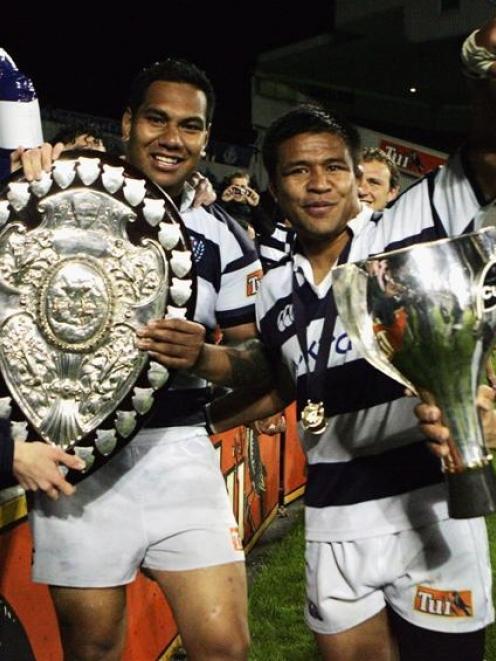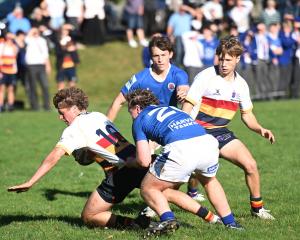
Some of them come off. Lord Ranfurly donating his trophy. Taking a bloke called Lomu out of the forwards and putting him on the wing.
But sadly, there are a few brainwaves which have met with little or no success.
Putting Hart and Wyllie together to coach an ageing and tired team at the 1991 World Cup.
Or resting the country's top players at the start of a World Cup season.
The latest idea to come a cropper is the decision to expand the national provincial competition to 14 teams.
Back in 2005, when rugby was on a roll both on the field and in the accountant's ledger, on the back of the British and Irish Lions tour, the decision to have 14 teams in the new Air New Zealand Cup was seen as a bold and courageous move.
The New Zealand Rugby Union had indicated it would only increase the competition to 12 teams but said such was the quality of the four applicants that it accepted them all.
But going into the third season, the competition is almost certain to change.
The NZRU has released proposed changes, and though unions have a chance to make a comment, it appears inevitable the competition will change to either 11 or 12 teams next year, with a complete round-robin.
Take a quick look at the provincial unions' coffers and it is not hard to see why the competition can not continue in its present form.
Too many unions paid players too much when too few spectators were coming through the gate.
Bay of Plenty is laying off staff and being propped up by the NZRU.
Tasman, the amalgamation between Nelson Bays and Marlborough, which was launched like a Mills and Boon marriage, appears headed for the divorce courts with debts running into the millions, and the family silver, namely Lansdowne Park, being sold.
Northland is wondering where its future lies.
Otago made a loss last year of more than $1.6 million, and the setting of the salary cap of $2 million for the new competition obviously became a target for many unions, rather than just a number.
The new competition, which is expected to be introduced as early as next year, will probably start later, in mid August, and finish later, in mid November.
Players will not enjoy the same remuneration and may be forced to look for another job.
Sighting an All Black in the new competition will be as likely as Graham Henry wearing the Christchurch mayoral chains.
The competition will be the chance for players to show their wares and earn a Super 14 contract.
On the field this season, Wellington, under new coach Jamie Joseph, starts as the favourite.
With a good number of Super 14 players, the side from the capital will be looking to go one better than last year.
Reigning champion Auckland has been gutted by player defections and may struggle, while Canterbury and Waikato will be near the top of the table.
Southland appears to have a strong side, and may fancy its chances, while Otago will want to improve on its 7th position last year, and a disappointing quarterfinal loss to Canterbury.











